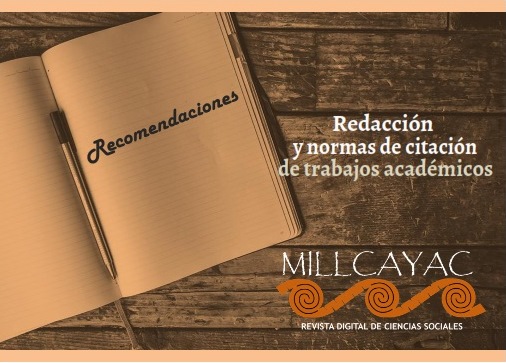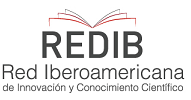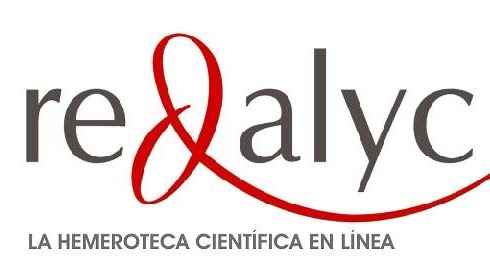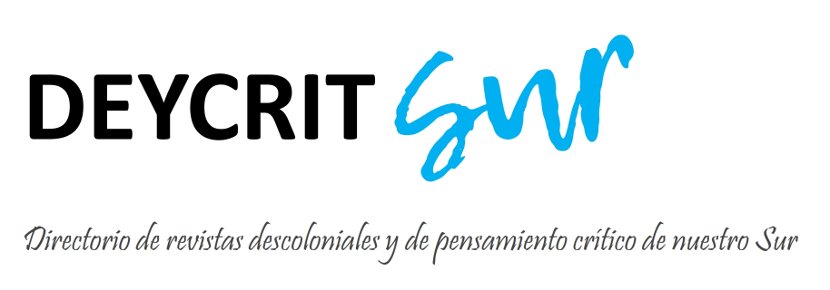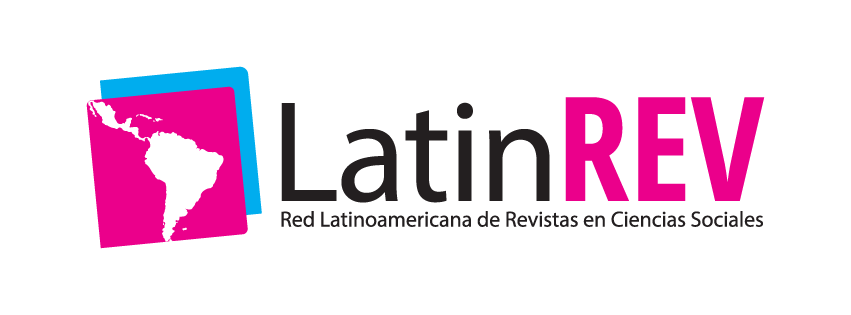Submissions
Submission Preparation Checklist
As part of the submission process, authors are required to check off their submission's compliance with all of the following items, and submissions may be returned to authors that do not adhere to these guidelines.- The submission has not been previously published, nor is it before another journal for consideration (or an explanation has been provided in Comments to the Editor).
- The submission file is in OpenOffice, Microsoft Word, or RTF document file format.
- Where available, URLs for the references have been provided.
- Author's personal data does not appear anywhere inside the document.
Género y Derechos Humanos
Incluye temáticas referidas a los derechos de las mujeres; experiencias corporales y pedagógicas; sexualidades disidentes; memorias y genealogías. Movimientos de mujeres, feministas, LGTTTBIQ y de Derechos Humanos. Trabajo, educación, salud, economía. Políticas de género, Interseccionalidad de categorías de discriminación: clase, diferencia sexual, sexualidad, raza, etnia, nacionalidad, religión, edad, discapacidad. Perspectivas críticas de género, feminismos y estudios descoloniales.
Esta sección admite la presentación de:
Artículos (hasta 9000 palabras)
Avances de investigación (hasta 2500 palabras)
Ensayos (hasta 2500 palabras)
Reseñas bibliográficas (hasta 2000 palabras)
Entrevistas (5000 a 9000 palabras)
Relatos de experiencias (2000 a 5000 palabras)
Estado y Movimientos Sociales en Nuestra América
Incluye todas las problemáticas del Estado;  gobiernos;  participación; representación; política; poder; relaciones internacionales; instituciones estatales y políticas públicas (educación, salud, trabajo, etc.); movimientos sociales (comunitarios, indígenas, campesinos, sindicales, entre otros); sujetos, discursos y prácticas. Ideas, procesos sociales y políticos desde y para Nuestra América.
Esta sección admite la presentación de:
Artículos (hasta 9000 palabras)
Avances de investigación(hasta 2500 palabras)
Ensayos (hasta 2500 palabras)
Reseñas bibliográficas (hasta 2000 palabras)
Entrevistas (5000 a 9000 palabras)
Relatos de experiencias (2000 a 5000 palabras)
Bienes Comunes y Sociedad
Incluye temáticas tales como Bienes Comunes (bien público / bien común), gestión, acceso y política; principio de reciprocidad; propiedad colectiva y comunitaria; ecología; biodiversidad; ecosistemas y nuevas economías; geo-corpo-política; economía ecológica; biosocioeconomía; Buen vivir / Vivir Bien, estrategias; modelos sociales sostenibles. Movimientos socioambientales; tierra, cuerpos y territorios; conflictos territoriales; luchas y resistencias.
Esta sección admite la presentación de:
Artículos (hasta 9000 palabras)
Avances de investigación (hasta 2500 palabras)
Ensayos (hasta 2500 palabras)
Reseñas bibliográficas (hasta 2000 palabras)
Entrevistas (5000 a 9000 palabras)
Relatos de experiencias (2000 a 5000 palabras)
Comunicación, Arte y Cultura:
Mediatización, democracia y poder. Discursos, representaciones mediáticas y prácticas comunicacionales. Epistemología, teorías y metodologías de la comunicación. Cultura y Comunicación. Nuevas Tecnologías. Convergencia cultural y ecología de los medios. Periodismo. La construcción del acontecimiento en la era de Internet. Comunicación y cultura juvenil en la era digital. Cultura escolar y cultura mediática. Comunicación, Género, clase y raza. Consumos culturales urbanos. Comunicación alternativa, popular y comunitaria. Fronteras: arte y comunicación. Cuerpo, políticas y representación. Figuraciones en la Prensa, Cine, Televisión, Internet. Activismo e identidades en el arte. Inscripciones en el cuerpo y performances. Representaciones del deseo. Tramas discursivas. Textos, voces y relatos. Literatura, Teatro, Música, Fotografía. Acervos, museos, colecciones y gestión patrimonial. Consumo, públicos y crítica curatorial. Tensiones entre lo local, lo regional y lo global. Debates teóricos en torno a la definición de los estudios visuales.
Esta sección admite la presentación de:
Artículos (hasta 9000 palabras)
Avances de investigación (hasta 2500 palabras)
Ensayos (hasta 2500 palabras)
Reseñas bibliográficas (hasta 2000 palabras)
Entrevistas (5000 a 9000 palabras)
Relatos de experiencias (2000 a 5000 palabras)
Copyright Notice
Los autores/as que publiquen en esta revista aceptan las siguientes condiciones:
- Los autores/as conservan los derechos de autor y ceden a la revista el derecho de la primera publicación, con el trabajo registrado con la licencia de atribución de Creative Commons, que permite a terceros utilizar lo publicado siempre que mencionen la autoría del trabajo y a la primera publicación en esta revista.
- Los autores/as pueden realizar otros acuerdos contractuales independientes y adicionales para la distribución no exclusiva de la versión del artículo publicado en esta revista (p. ej., incluirlo en un repositorio institucional o publicarlo en un libro) siempre que indiquen claramente que el trabajo se publicó por primera vez en esta revista.
- Se permite y recomienda a los autores/as a publicar su trabajo en Internet (por ejemplo en páginas institucionales o personales) antes y durante el proceso de revisión y publicación, ya que puede conducir a intercambios productivos y a una mayor y más rápida difusión del trabajo publicado (vea The Effect of Open Access).
El plagio es una práctica que viola las normas éticas y los derechos de autor/a, de este modo los responsables editoriales de Millcayac – Revista Digital tomaremos todas las prevenciones necesarias para evitarlo y detectarlo en los trabajos a publicar. El plagio puede suceder en cualquier tipo de documento donde se toman secciones o partes de otras fuentes sin incluir las referencias pertinentes.
Los sistemas de detección de plagio, llevados adelante por los/as revisores/as de Millcayac- Revista Digital serán variados e incluirán desde de la asistencia de computadoras, bases de datos, Internet, y software adecuado, como aquellas herramientas provenientes de la revisión del estilo de escritura y usos de técnicas lingüísticas con el objeto de detectar plagios de copia literal conocido como "copy & paste" u otras modalidades de plagios encubiertas.
El cuerpo editorial de Millcayac- Revista Digital se reserva el derecho de retirar cualquier trabajo recibido, aceptado o ya publicado en caso de constatarse plagio, falsificación o publicación duplicada.

Millcayac - Revista Digital de Ciencias Sociales está distribuido bajo una Licencia Creative Commons Atribución-NoComercial-CompartirIgual 4.0 Internacional.
Basada en una obra en http://revistas.uncu.edu.ar/ojs/index.php/millca-digital.
Privacy Statement
The names and email addresses entered in this journal site will be used exclusively for the stated purposes of this journal and will not be made available for any other purpose or to any other party.
